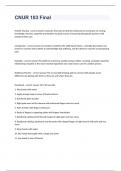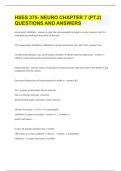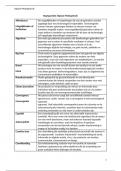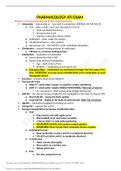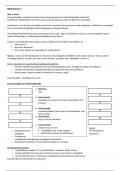Summary
Summary IMAGINING SOCIOLOGY Chapter 1: The Sociological Imagination
- Module
- Institution
CLEAR and CONCISE assimilation of notes from lectures (SOCI 102 with Catherine Corrigall-Brown), the textbook (Imagining Sociology written by Catherine Corrigall-Brown), and discussions. These notes include a COMPLETE BREAKDOWN of each important concept (with examples) and key terms highlighted. If...
[Show more]






